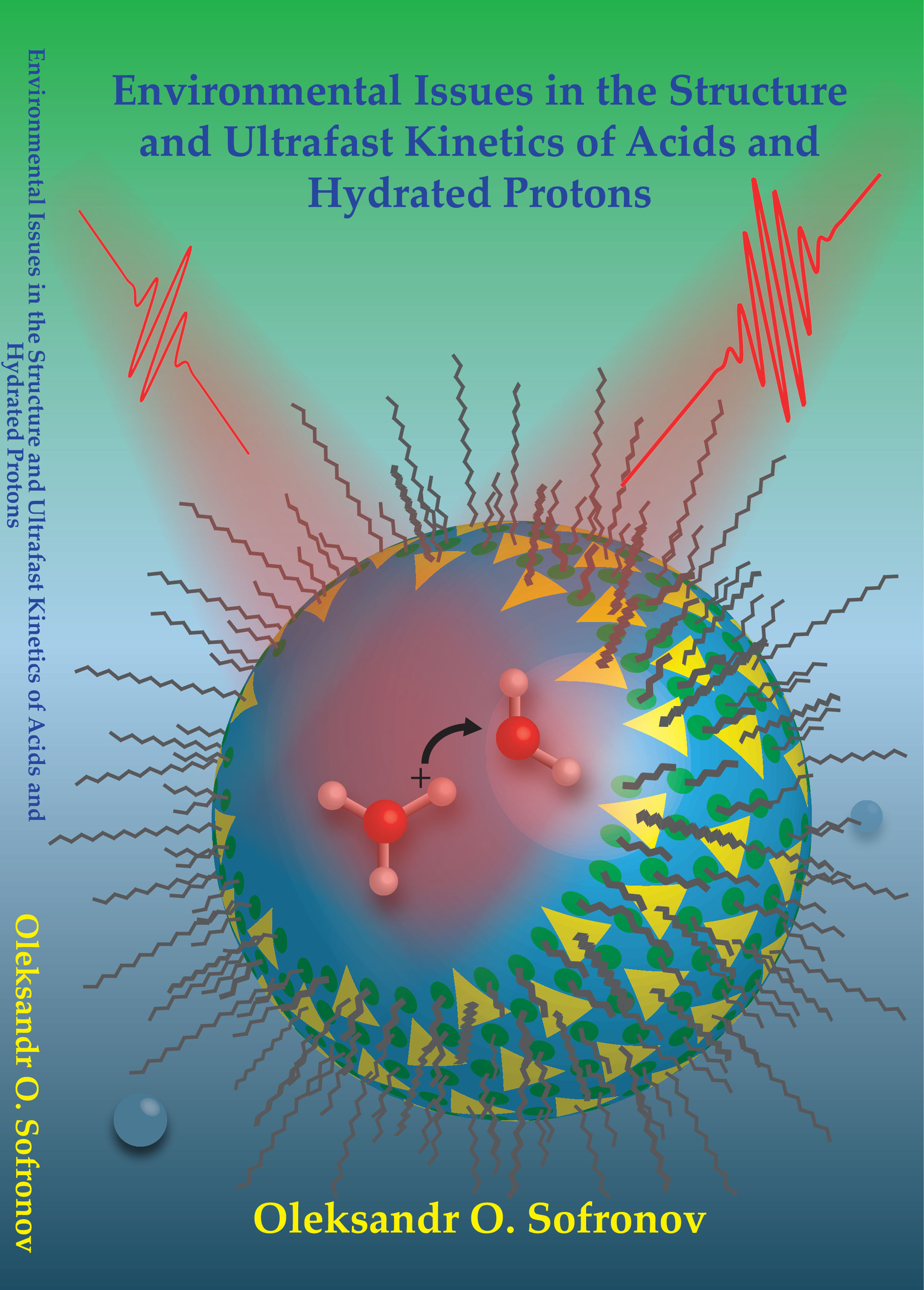Environmental Issues in the Structure and Ultrafast Kinetics of Acids and Hydrated Protons
Protons (H+) are the most abundant cations in chemical processes. Proton itself is a superacid and in solution it always interacts either with the conjugate base or with the solvent molecules forming complex solvation structures. In this thesis we study the structure of hydrated protons in mixed solvents and in nanoconfined water. We also study the kinetics of proton transfer in bulk and nanoconfined water. The molecular events of proton transfer occur on picosecond time scale. Thus, to study structure and dynamics of various protonated species we use femtosecond pump-probe and two-dimensional infrared spectroscopy. In these methods we excite the vibrations of the solvated protons with an intense femtosecond pump pulse and measure the time dependent changes in the infrared absorption spectrum using a delayed weak probe pulse. From these spectral changes we can draw conclusions about the dynamics of energy redistribution within the proton solvation structures. In addition, from the dependence of the absorption change on the relative polarization of pump and probe pulses (parallel or perpendicular) we obtain the information about the relative orientation of the transition dipole moments of the vibrations and the molecular groups corresponding to them. This information helps us to determine geometry of molecular structures which participate in proton solvation and proton transfer.



